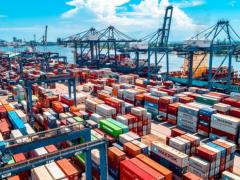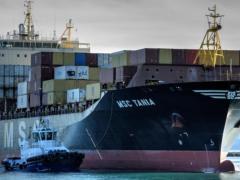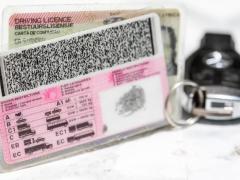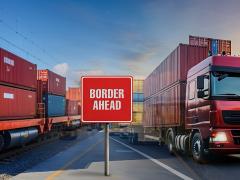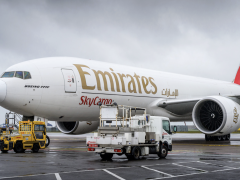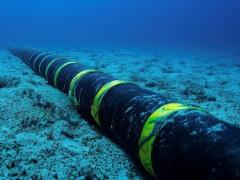Fuel consumption remains one of the most serious cost concerns in South Africa’s road freight industry, at least two truck fleet experts told a Transport Forum looking at “Digital Dynamics” in Boksburg on Thursday.
Speaking after the pump price had increased by 82 and 84 cents for 500 high-sulfur and 50 for ultra-low sulfur diesel the day before, Ctrack’s Allen Harington said fuel expenses “contribute 68% of operational costs in large mixed fleets”.
The head of sales at the telematics company stressed that “even small increments or small adjustments to fuel prices, like 50 cents per litre, can add over R160 000 per month to fuel bills for any vehicle operation using 325 000 litres per month”.
Reinhardt Pieterse of TruckFuelNet (TFN) said they had identified several cost drivers linked to driver behaviour, routes and truck aspects that contributed to fuel waste – idling, 8%; harsh braking, 7%; speeding, 6%; fuel theft, 4%; tyre pressure, 4%; load balancing, 4%; engine health, 3%; and route deviation, 3%.
In harsher terms, annual losses caused by fuel sourcing, quality and theft stripped R1.02 million out of truck fleet coffers, the chief revenue officer told attendees at the Forum, co-hosted by telematics provider CtrlFleet.
Fuel waste from vehicle efficiency, routes and operations is equally alarming, respectively costing operators about R1.22m and R1.63m every year.
But it’s driver behaviour that has the highest impact, adding R5.09m to annual expenses and totalling at least 25% of running costs.
Pieterse said TFN had conducted research by looking at a company with an annual fuel bill of R20m and found potential wastage of about R9m.
He said that was why it was so important to acutely consider expenses related to factors such as cross-breaking, speeding, fuel, engine health, tyre pressure and route deviation.
Harington commented that dollar-related volatility in the fuel price added serious pressure to the operations of transport companies.
“Industry leaders warn that continuous fuel price hikes without mitigation will most probably lead to closure of operations across our industries,” he said.
Talking about the use of telematics, he said: “Digitalisation is not just about tracking anymore, it's about transforming operations by adopting technology and ecosystems such as real-time tracking and analytics that help optimise operations, detect fuel anomalies, and incentivise economical driving.”
Using technology to optimise operations just in terms of curbing fuel theft can drive down cost by as much 37%, Harington said.



